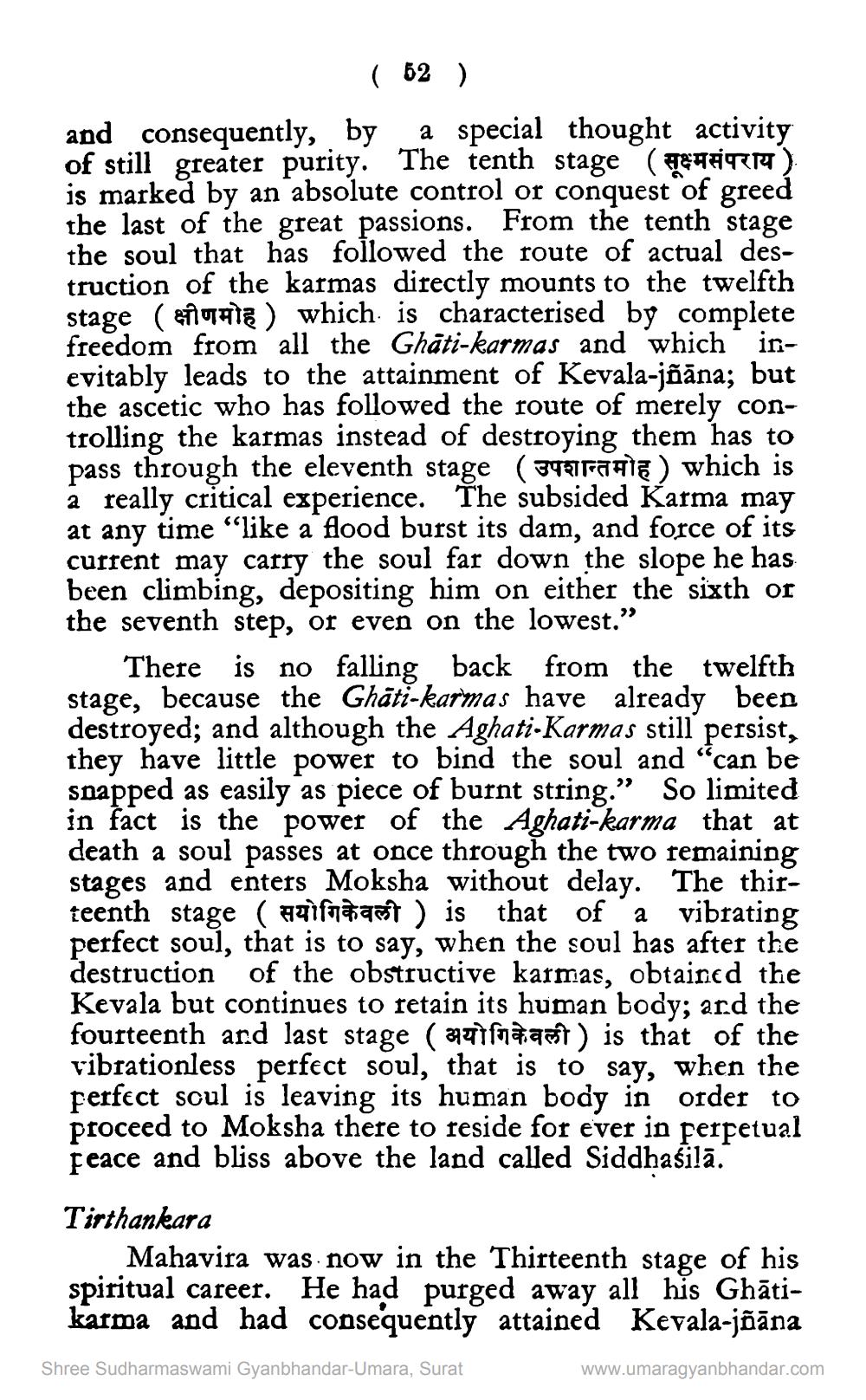________________
( 52 )
and consequently, by a special thought activity of still greater purity. The tenth stage (ETÁTIT ) is marked by an absolute control or conquest of greed the last of the great passions. From the tenth stage the soul that has followed the route of actual destruction of the karmas directly mounts to the twelfth stage (g) which is characterised by complete freedom from all the Ghati-karmas and which inevitably leads to the attainment of Kevala-jñāna; but the ascetic who has followed the route of merely controlling the karmas instead of destroying them has to pass through the eleventh stage () which is a really critical experience. The subsided Karma may at any time "like a flood burst its dam, and force of its current may carry the soul far down the slope he has been climbing, depositing him on either the sixth or the seventh step, or even on the lowest."
There is no falling back from the twelfth stage, because the Ghati-karmas have already been destroyed; and although the Aghati-Karmas still persist, they have little power to bind the soul and "can be snapped as easily as piece of burnt string." So limited in fact is the power of the Aghati-karma that at death a soul passes at once through the two remaining stages and enters Moksha without delay. The thirteenth stage (af) is that of a vibrating perfect soul, that is to say, when the soul has after the destruction of the obstructive karmas, obtained the Kevala but continues to retain its human body; and the fourteenth and last stage (af) is that of the vibrationless perfect soul, that is to say, when the perfect soul is leaving its human body in order to proceed to Moksha there to reside for ever in perpetual Feace and bliss above the land called Siddhasila.
Tirthankara
Mahavira was now in the Thirteenth stage of his spiritual career. He had purged away all his Ghatikarma and had consequently attained Kevala-jñāna
www.umaragyanbhandar.com
Shree Sudharmaswami Gyanbhandar-Umara, Surat




